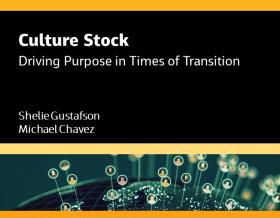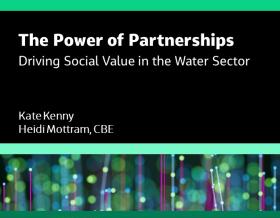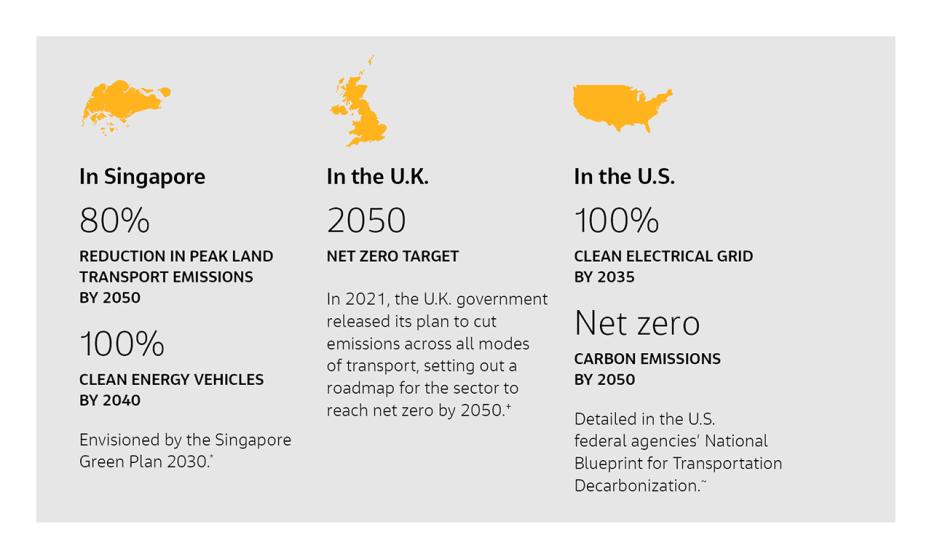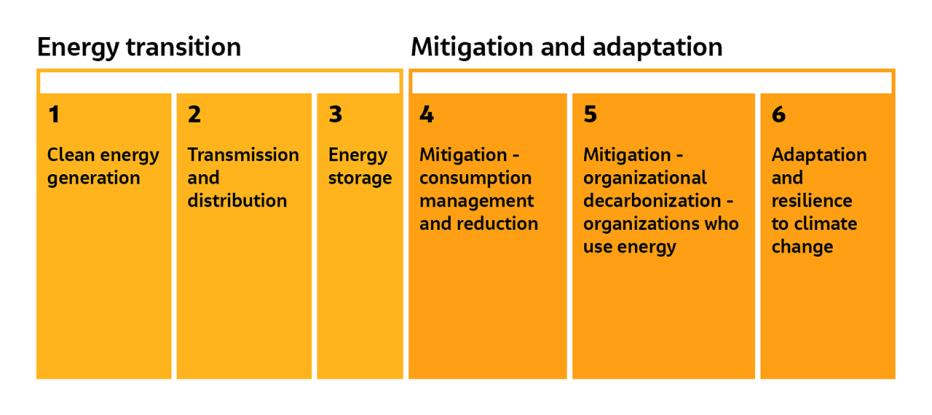







Sit down with our visionary team of thinkers, dreamers and doers to see what a day in the life is like.



A curated selection of some of the top-listened to and trending podcast episodes from our popular If/When podcast series, which has over 7M downloads to date.



Together with our visionary partner, PA Consulting, we're establishing our position in high end advisory services, creating a springboard to expand in high value offerings beyond the core.


At Jacobs, we're challenging today to reinvent tomorrow by solving the world's most critical problems for thriving cities, resilient environments, mission-critical outcomes, operational advancement, scientific discovery and cutting-edge manufacturing, turning abstract ideas into realities that transform the world for good. With approximately $16 billion in annual revenue and a talent force of more than 60,000, Jacobs provides a full spectrum of professional services including consulting, technical, scientific and project delivery for the government and private sector.



Jacobs. A world where you can.



As climate change threatens water security around the world, more communities are turning to water reuse as a resilient water supply solution and embracing the OneWater principle that all water has value. Jacobs has been supporting clients with water reuse programs for decades, beginning with the first applications of advanced wastewater treatment technologies in the 1960s. We provide our clients with a full range of services, from water reuse feasibility studies to design, construction and operations.



As our clients navigate the digital transformation and growing cyber risks, we have positioned ourselves at the forefront of this growth, adding digital capabilities, products and tools to serve a growing set of customers.



The only certainty about the future is uncertainty. Resilience is an attribute of a smarter planet, and requires planning and adapting ahead of potential threats. We help our clients survive, recover, adapt and thrive.



As a purpose-led company, we know we have a pivotal role to play in addressing the climate emergency. We consider this not only good business, but our duty to channel our technology-enabled expertise and capabilities toward benefitting people and the planet.



For more than 30 years, Jacobs has been responsible for planning and implementing Lead and Copper Rule-related strategies which protect millions of people in the U.S. and Canada. Our work includes enhanced water quality monitoring strategies, sampling plan development, harvested pipe-scale analysis, lead service line inventories and replacement plans, corrosion control studies and the incorporation of equity and environmental justice considerations into compliance programs.



Jacobs is working to help clients across the United States secure federal funding for projects that make our cities and communities more connected and sustainable. Working hand-in-hand with clients from coast to coast and everywhere in between, Jacobs develops bold, innovative solutions to address the nation’s toughest challenges.



Now more than ever, we appreciate the hard work, sacrifice and dedication of the medical profession in ensuring the health and safety of our communities.



Together, we are stronger. Together, we can transform the future.



We work in partnership, delivering some of the most challenging, diverse and innovative projects and programs globally across multiple sectors. We integrate complex interfaces across planning, procurement and delivery to help unlock better social, environmental and economic outcomes from mega and giga projects.



We’ve provided design-build services to the water sector for over 25 years and delivered more than 150 projects. We offer fully integrated design-build and design-build-operate capabilities to tackle the most complex water challenges and work in close collaboration with our clients.



Stories that capture our partnerships and innovative impact for a more connected, sustainable world



As populations expand and economies evolve, global demand for passenger and freight transportation grows, along with transport’s emissions footprint. According to the Intergovernmental Panel on Climate Change, this trend shows no sign of abating3. Transport-related emissions will continue to rise unless we make rapid, large-scale reductions in greenhouse gas emissions stemming from these activities.
As such, it has become a global imperative for governments, transport authorities and organizations to set the transport sector on track to meet the Paris Climate Agreement targets and avert the worst climate impacts.
Insights: Defining the Pathway for Decarbonization in the Transport Sector

There are many ways the transport sector is stepping up to make this shift - transitioning to renewable energy supply, acquiring green fleets of Electric Vehicles (EV) or hydrogen-powered vehicles, implementing carbon taxes and promoting active mobility modes like walking and cycling. These measures not only help to reduce emissions but also help improve air quality and ultimately, the health and wellbeing of local communities. While there is still much work to be done, the transport sector is taking essential steps toward a cleaner, more sustainable future.
The rapid uptake of net zero targets signifies a hopeful inflection point for the industry; however, achieving these is a complex undertaking that requires a comprehensive suite of solutions addressing multifaceted challenges across infrastructure, operations and governance. Transport decarbonization will require a fundamental rebalancing of the energy environment, development of new supply chains and a significant investment in infrastructure and workforce development. Careful planning and implementation will be needed to realize a green fleet future, whether for an urban transit agency or a small-town municipal fleet.
Broadly speaking, decarbonization is an overarching path to a net zero future comprised of two critical pathways:
To accelerate the transition and successfully mitigate the worst impacts of climate change, our efforts must address both of these critical pathways. It is also important to highlight that there is no one-size-fits-all solution to decarbonization, and a net zero future will be unique to every organization.

Decarbonization is a complex process and requires input from a broad range of experts and stakeholders.
Teams must collect and report data, calculate emissions, set targets and manage abatement initiatives. Defining and adopting a comprehensive approach to decarbonization will help organizations systematically and effectively tackle emissions reduction, chart a clear pathway to carbon neutral operations and set the stage for a more sustainable future.
Jacobs’ Net Zero Labs workshops are a starting point for organizations wanting to decarbonize their operations and supply chains. Through the workshop process, we help organizations develop a clear, practical and accountable pathway to rapidly decarbonize, achieve carbon-neutral operations, adopt an optimal mix of low-carbon solutions, and shift to a zero-carbon economy while aligning to positive societal impact and long-term business growth objectives.
To achieve net zero emissions, it's important to have a clear understanding of where you currently stand. Measuring baseline emissions is an essential first step to this process. Baselining emissions helps organizations understand the sources and intensity of their scope 1, 2, and 3 emissions, identify the areas where emissions reduction strategies can be most impactful and provides point of reference against which future progress can be tracked.
However, for many organizations, baselining emissions can be a big challenge. The process of tracking and reporting emissions data can be time-consuming and resource intensive, particularly for Scope 3 emissions which are large and indirect. Further, the uncertainties associated with the analysis and interpretation of results can sometimes lead to more questions than answers.
Domestic and international transport currently generates 20 percent of global greenhouse gas (GHG) emissions, as per World Bank4. In particular, road travel accounts for three-quarters of transport emissions. Most of these emissions come from passenger vehicles such as cars, taxis and buses. Electric vehicles, hydrogen-powered vehicles, and active transportation such as bicycles and other forms of micro-mobility offer viable alternatives; however, the scale of uptake of zero emission vehicles to date has been modest, and we’ve got a long way to go.
According to the International Energy Agency, ten million electric cars were on the road as of 2020, and electric micro-mobility options are also expanding. Shared electric scooters, electric-assist bicycles and electric mopeds are now available in over 600 cities across 50 countries5. Further research reports suggest that the global electric vehicle market saw a 65% YoY growth in 2022 and EVs accounted for over 14% of the world’s passenger vehicle sales in 20226.
To further accelerate the transition to green fleets, ramping up investment in alternative vehicle technology research, development and deployment, as well as the associated charging or refueling infrastructure must be at the top of the agenda.
Jacobs has various in-house tools such as Fleet Max Energy Modeling software to support the conversion of vehicle fleets from fossil fuels to zero-emission alternatives. By considering various aspects of fleet operation such as transport service, electric power demand and cost, this solution helps organizations optimize their transition to green fleets, reducing emissions and improving sustainability outcomes.
To decarbonize the rail sector, electrification of rolling stock and associated infrastructure is the key, which should then be powered by renewable energy instead of fossil fuels. Another alternative is to increase the uptake of hydrogen fuel cell, batteries and biodiesel for rolling stock.
Transitioning from fossil fuels to lower carbon alternatives has a vital role in reducing transport's climate footprint. Alternative fuels such as biofuels and energy sources such as solar, wind, hydrogen and geothermal, can be explored. As new innovations and technologies are developed and tested, rigorous monitoring of performance, efficiencies and impacts of these solutions is critical to identify areas for improvement.
Numerous methods and tools can be applied to set robust ‘science-based’ goals at both local and regional levels. This includes defining impact and opportunity by sector or service area if required. If offsetting is required, assurance on approach, principles, ownership and validity will need to be planned.
Decarbonization presents a significant opportunity for transport authorities to collaborate with city stakeholders and local communities to look for synergies across diverse projects, assets and infrastructure to deliver the maximum associated social, economic and environmental benefits. Beyond climate impacts, we must not lose sight of opportunities to contribute to the broader society's quality of life, community wellbeing, equity and economic mobility.
“The rapid uptake of net zero targets signifies a hopeful inflection point for the industry; however, achieving these is a complex undertaking that requires a comprehensive suite of improvements addressing multifaceted issues across infrastructure, operations and governance. Transport decarbonization will require a fundamental rebalancing of the energy environment, development of new supply chains and a significant investment in infrastructure and workforce development. ”

Tanmay Bishnoi
Jacobs Decarbonization Strategy Lead, Asia
Significant strides are being made to support a transition to a zero-carbon transport system. However, further efforts are required to transform the sector successfully, including:
As one of the world’s largest consulting firms – backed by decades of cross-market delivery across rail, aviation, roads, transit, ports and maritime, as well as energy and power, we’re uniquely positioned to help our transport clients find the best solutions to their decarbonization challenges.
Whether we’re implementing net zero strategies for major transport programs, investigating the technical feasibility of hydrogen-powered rail systems and airplanes, implementing carbon reduction measures at world-class airports, or supporting the conversion of vehicle fleets to zero-emission alternatives, our team has played critical roles in helping transport clients move forward in their decarbonization journey.
[1] https://www.iea.org/data-and-statistics/charts/global-energy-related-co2-emissions-by-sector
[2] https://www.iisd.org/articles/deep-dive/road-sustainable-transport
[3] https://www.ipcc.ch/report/ar5/wg3/
[4] https://www.worldbank.org/en/topic/transport/overview
[5] https://www.iea.org/reports/global-ev-outlook-2020
[6] https://www.counterpointresearch.com/global-electric-vehicle-market-share/

Tanmay Bishnoi is a senior management consultant at Jacobs with a master’s degree from Kingston University London and is a Chevening Fellow in Leadership and Excellence from the University of Oxford. He has more than 14 years of cross-continent experience across Singapore, India, the U.S., Central Asia, the Middle East and Europe. He specializes in decarbonization and net-zero strategy, clean energy transition including renewable energy and energy storage, corporate renewable energy procurement, program management, pre-feasibility and feasibility analysis. He has also worked on emerging technologies like green hydrogen and electric mobility.
Tanmay is a Chartered Engineer with the Institution of Engineers, an Associate Member of the Institution of Engineering and Technology U.K., a Life Member of Leaders Excellence at Harvard Square, a Renewable Energy Expert from the European Union Energy Centre and a COBENFITS Specialist in Renewable Energy.